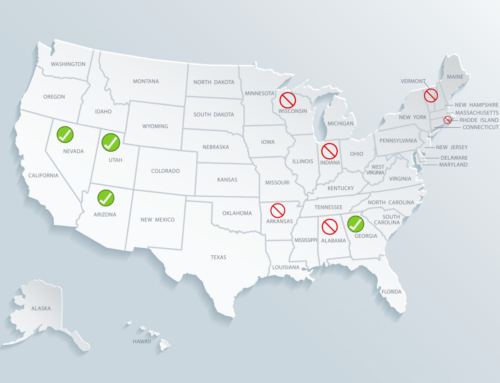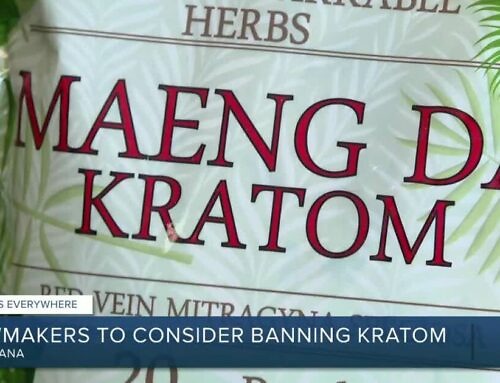Hey there, curious minds! Today, we’re diving into the fascinating world of legality and exploring the question on everyone’s lips: “Mapping Legality: Kratom Illegal in What States?” If you’ve ever wondered about the legal status of kratom across the United States, you’ve come to the right place. This article will be your guide to understanding where kratom stands in the eyes of the law.
Now, you might be wondering why we’re talking about kratom. Well, kratom is a plant native to Southeast Asia that has gained popularity for its potential health benefits. However, its legality in the United States varies from state to state, which can be quite confusing. Fear not, my friends, because we’re here to shed some light on this topic.
So, grab your favorite beverage, get comfy, and let’s explore the fascinating world of kratom legality. We’ll take you on a journey through the states, highlighting where kratom is legal and where it’s not. Get ready to unravel the complex tapestry of kratom laws and regulations across the United States. Let’s dive in, shall we?
Table of Contents
Mapping Legality: Kratom Illegal in What States?
Kratom, a tropical tree native to Southeast Asia, has gained popularity as a natural remedy for various health conditions. However, its legal status in the United States is complex and varies from state to state. This article will provide an overview of the legality of kratom in different states, highlighting where it is legal and where it is not.
Legal States
In several states, kratom is legal for both recreational and medicinal use. These states include:
1. California: Kratom is legal in California, and it can be purchased and consumed without any restrictions. The state has not imposed any regulations or bans on kratom products.
2. Colorado: Kratom is legal in Colorado, and it is widely available in various forms. Users can buy kratom from local smoke shops or online vendors without any legal repercussions.
3. Florida: Kratom is legal in Florida, and it is commonly used by residents for its reported health benefits. The state has not banned or regulated the sale or possession of kratom.
4. Oregon: Kratom is legal in Oregon, and it is widely accessible to residents. The state has not imposed any restrictions or regulations on kratom products.
5. Washington: Kratom is legal in Washington, and it can be purchased and consumed without any legal issues. The state has not banned or regulated kratom.
Despite being legal in these states, it is important to note that the FDA has not approved kratom for any medical use, and its safety and efficacy are still a subject of debate.
States with Restrictions
While kratom may be legal in some states, there are several states that have imposed restrictions on its sale and use. These states include:
1. Alabama: Kratom is classified as a Schedule I controlled substance in Alabama. The possession, sale, and distribution of kratom are illegal in the state.
2. Arkansas: Kratom is illegal in Arkansas. The state has banned the sale, possession, and use of kratom.
3. Indiana: Kratom is classified as a Schedule I controlled substance in Indiana. The state has banned the sale, possession, and use of kratom.
4. Tennessee: Kratom is illegal in Tennessee.
5. Wisconsin: Kratom is illegal in Wisconsin. The state has banned the sale, possession, and use of kratom.
It is important to research and understand the specific laws and regulations regarding kratom in your state before purchasing or using it.
In conclusion, the legality of kratom varies from state to state in the United States. While it is legal in some states for recreational and medicinal use, it is illegal or heavily regulated in others. Before using kratom, it is essential to familiarize yourself with the laws and regulations in your state to ensure compliance. Additionally, it is always recommended to consult with a healthcare professional before using any herbal supplement.
Key Takeaways: Mapping Legality: Kratom Illegal in What States?
- Kratom is currently illegal in six states: Alabama, Arkansas, Indiana, Rhode Island, Vermont, and Wisconsin.
- In some states, kratom is classified as a controlled substance or a Schedule I drug.
- However, kratom is legal in most states, including California, Florida, New York, and Texas.
- It’s important to always check the legality of kratom in your state before using or purchasing it.
- Legal status of kratom can change, so stay updated with the latest regulations in your area.
Frequently Asked Questions
Is kratom illegal in any states?
Yes, kratom is illegal in certain states in the United States. While kratom is legal at the federal level, individual states have the authority to regulate or ban the substance within their borders. It’s important to note that the legality of kratom can change over time, so it’s always best to stay informed about the current laws in your state.
As of now, the states where kratom is illegal include Alabama, Arkansas, Indiana, Rhode Island, Vermont, and Wisconsin. In these states, possessing, selling, or using kratom is prohibited. It’s crucial to respect the local laws and regulations regarding kratom to avoid any legal consequences.
Why is kratom illegal in certain states?
The reasons behind the legality of kratom vary from state to state. Some states have banned kratom due to concerns over its potential health risks and addictive properties. There have been cases where kratom has been associated with adverse effects, including dependency and withdrawal symptoms. Additionally, some states may have classified kratom as a controlled substance based on their interpretation of its effects and potential for abuse.
It’s worth noting that there is ongoing debate and research surrounding the benefits and risks of kratom. Some proponents argue that it has potential medicinal uses and can provide relief for certain conditions. However, the decision to ban kratom in certain states is ultimately based on the interpretation of available evidence and the concerns of lawmakers.
Is kratom legal in all other states?
Yes, kratom is legal in the majority of states in the United States. Apart from the states where it is illegal, kratom is generally legal to possess, sell, and use. However, it’s crucial to stay updated on the laws and regulations surrounding kratom, as they can change over time.
It’s important to note that even in states where kratom is legal, there may be certain restrictions or regulations in place. For example, some states may require vendors to label kratom products with specific warnings or disclaimers. It’s always recommended to purchase kratom from reputable sources and ensure compliance with any local regulations.
Are there any pending legislations to ban kratom in other states?
Yes, there are ongoing discussions and proposed legislations to ban kratom in some states. The status of these legislations can change, and it’s important to stay informed about any potential changes in the legal status of kratom in your state.
Advocacy groups and individuals who support the use of kratom are actively working to prevent further bans and raise awareness about its potential benefits. It’s essential to engage in responsible and informed advocacy if you believe in the benefits of kratom and want to protect access to it in your state.
What are the potential consequences of using kratom in states where it is illegal?
The consequences of using kratom in states where it is illegal can vary depending on local laws and enforcement practices. In general, possessing, selling, or using kratom in states where it is illegal can result in legal penalties, including fines and imprisonment.
It’s important to respect and abide by the laws of your state to avoid any legal consequences. If you are unsure about the legality of kratom in your state, it’s best to seek legal advice or consult local authorities for clarification.
Conclusion: Kratom’s Legal Status Across the United States
In summary, navigating the legality of kratom across different states can be quite a challenge. While kratom remains legal at the federal level, its legal status varies from state to state. This variation can be attributed to different laws and regulations implemented by individual states. To ensure compliance and avoid any legal issues, it is crucial to be aware of the specific laws in your state regarding kratom.
As we’ve explored, there are several states where kratom is currently illegal, including Alabama, Arkansas, Indiana, Rhode Island, Vermont, and Wisconsin. These states have enacted laws prohibiting the possession, sale, and distribution of kratom. On the other hand, there are numerous states where kratom is legal, such as California, Florida, Texas, and New York, among others.
It’s important to note that the legal status of kratom is subject to change, as legislation and regulations evolve. Therefore, it is advisable to stay updated on the latest developments in your state. By doing so, you can ensure that you are within the bounds of the law when it comes to the possession and use of kratom. Remember, knowledge is power, and being informed about the legal landscape surrounding kratom will help you make informed decisions while using this botanical substance.









Leave A Comment